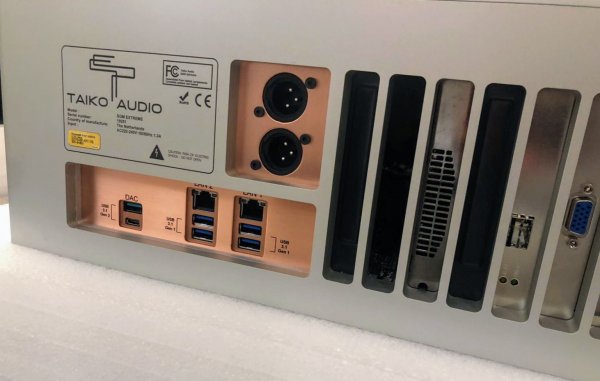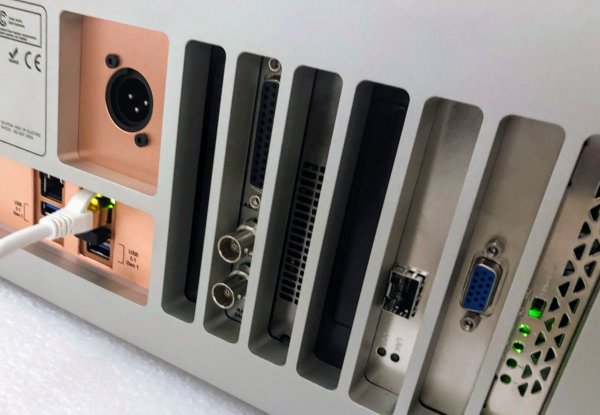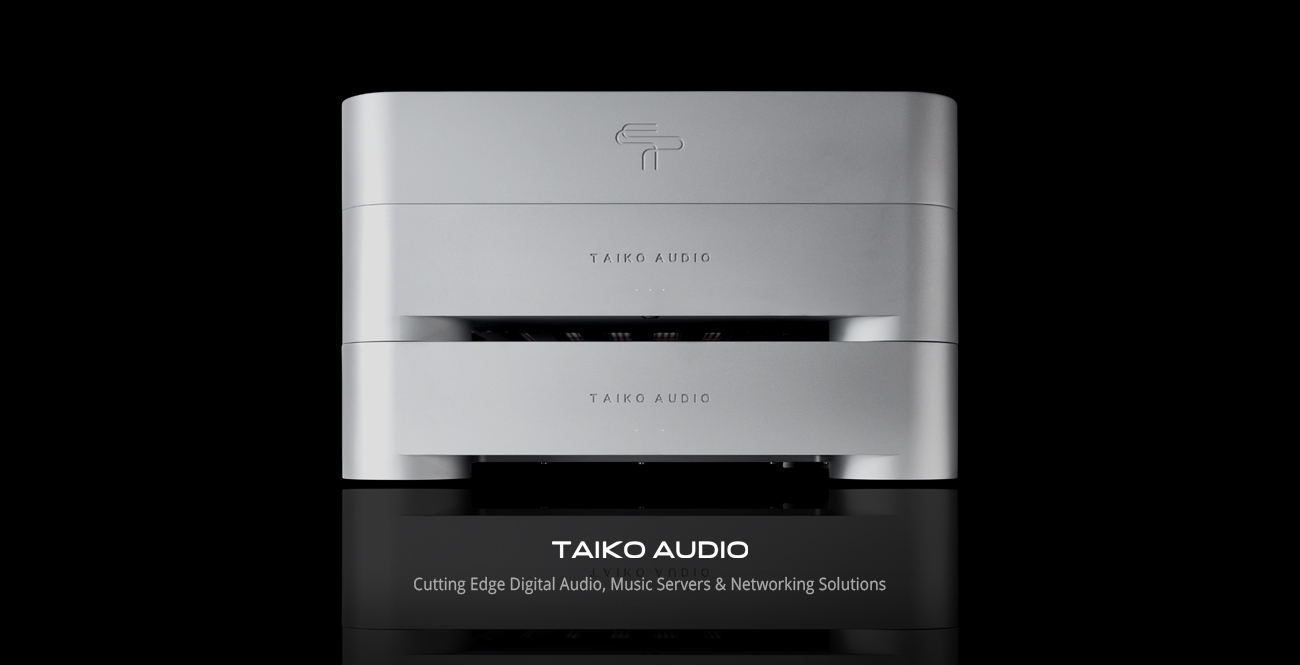It’s a custom order doubled up TotalDac Twelve Marc
Correct. It is the pinacle of all DACs.
Most are happy with single box totalDAC sulution from Vincent , I have 8 box solution.
It’s a custom order doubled up TotalDac Twelve Marc
Extremes are like buses. You wait an hour for one, and then six turn up at once...
Extremes are like buses. You wait an hour for one, and then six turn up at once...
I am surprised!


This Extreme got a single AES digital ouput, and two bnc clock sockets. Are the latter inputs or outputs? I have to ask Ben Lau of Volent HK later today.
Hello Emile,The two bnc clock sockets are word clock in/out. These are not 10MHz "master clock" compatible, they run at the sampling rate times a multiplier. You can for example sync with a Mutec MC-3. It is more commonly used in the studio recording scene then in High end.
Hello Emile,
How will this client of yours use these two clock input/output?
The two bnc clock sockets are word clock in/out. These are not 10MHz "master clock" compatible, they run at the sampling rate times a multiplier. You can for example sync with a Mutec MC-3. It is more commonly used in the studio recording scene then in High end.
The two bnc clock sockets are word clock in/out. These are not 10MHz "master clock" compatible, they run at the sampling rate times a multiplier. You can for example sync with a Mutec MC-3. It is more commonly used in the studio recording scene then in High end.
Vincent could probably fit an option to sync to his reclocker for example.
Does the clock card use input timing from the Extreme or is the card acting just as a frequency multiplier to feed and sync other equipment? So this would not be "audiophile" quality, but more in studio applications where difference in timing could cause "delays" or speed difference across different equipment? Meaning just like a turntable where a small speed fluctuation causes slowing or speeding up of the music.
Unless i misunderstood, the Extreme has done away with all clock oscillators internally?
I asked for this to run my TotalDAC 24.
Vincent was not willing to do so.
I think he perfected the clocks he is using the way they cannot be improved .
Maybe that will change but so far no way to get external clocking .
I think it is just like your Extereme that works WORST with additional super clock.
This Extreme got a single AES digital ouput,
As for USB versus AES/EBU:
There is a functional difference, single channel AES/EBU is limited to 24/192 sample rates. If the DAC supports it you can split channels into dual or quad wire AES/EBU. DCS supports this, it allows you to play 24/384 files by splitting it into 2 x 24/192. You will obviously run into issues with DSD playback.
For multichannel playback up to 8 AES/EBU channels are supported which enables you to do 7.1 playback. We cannot fit 8 AES/EBU connectors on the chassis, so you would then need to use a "break out cable". That is a db25 to 8x AES/EBU converter cable.
USB is only limited in sample rate and amount of channels by what the DAC USB receiver supports.
Sound quality between the two is generally competitive. Which one performs better depends on the implementation of the DAC interface, some DACs have superior AES/EBU interfaces, others have superior USB interfaces, and some are just on par. The Totaldac falls into the "on par" category, your preference may come down to your AES/EBU versus USB cable quality.
| Steve Williams Site Founder | Site Owner | Administrator | Ron Resnick Site Owner | Administrator | Julian (The Fixer) Website Build | Marketing Managersing |


